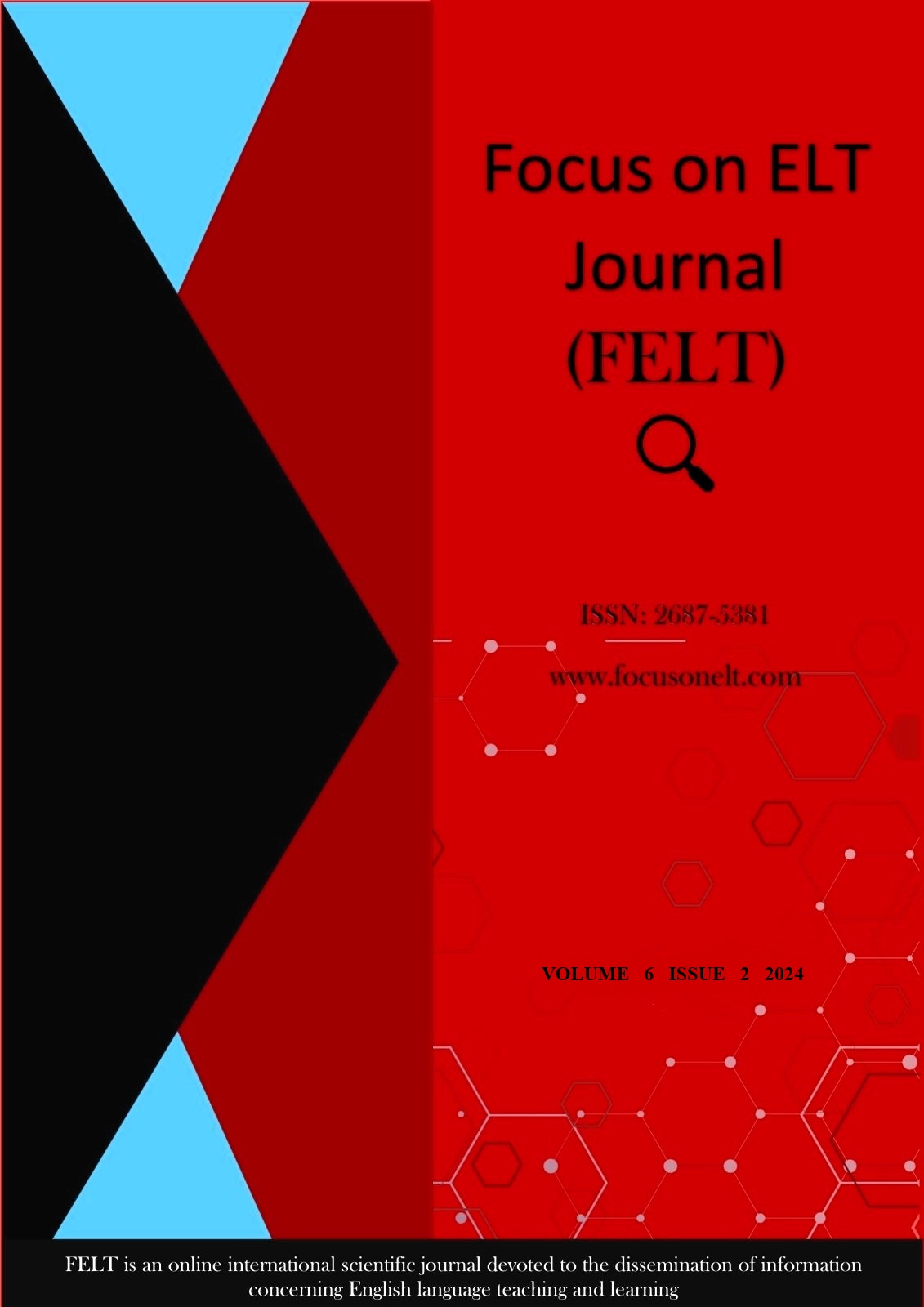Politeness perception of university students and lecturers in email requests: A comparison study
Main Article Content
Abstract
As digital communication lacks key aspects of face-to-face communication, such as the absence of paralinguistic clues, improving the quality of digital communication is a need in today’s world. In educational settings, digital communication often takes place through emails, especially between students and lecturers. The interaction between two parties must be investigated to contribute to effective communication quality because emails might lead to misunderstandings between students and teachers. In Turkish culture, politeness is expected to be expressed in the interaction while communicating with a person with a higher rank, and the same is also expected while communicating online. For this reason, this present study aims to investigate students’ and lecturers’ perceptions of politeness in email requests. Five sample emails, each adopting different politeness strategies: bald on record, negative politeness, positive politeness, positive and negative politeness, and off record, have been sent to lecturers and students from different universities. While lecturers were asked to rate the politeness of email requests, students were asked to rate the likelihood of sending the sample emails to their lecturers. The results have suggested an overall match between students’ and lecturers’ perceptions of politeness with both groups rating negative politeness strategy as the politest way to request emails.
Metrics
Article Details

This work is licensed under a Creative Commons Attribution-NonCommercial-NoDerivatives 4.0 International License.
References
Alsout, E., & Khedri, M. (2019). Politeness in Libyan postgraduate students’ e-mail requests towards lecturers. Journal of Language Communication, 6(1), 69-86.
Biesenbach-Lucas, S. (2007). Students writing emails to faculty: An examination of e-politeness among native and non-native speakers of English. Language Learning & Technology, 11(2), 59-81.
Bjørge, A. K. (2007). Power distance in English lingua franca email communication 1. International Journal of Applied Linguistics, 17(1), 60-80. https://doi.org/10.1111/j.1473-4192.2007.00133.x
Blum-Kulka, S., & Olshtain, E. (1986). Too many words: Length of utterance and pragmatic failure. Studies in Second Language Acquisition, 8(2), 165-179.
Blum-Kulka, S., House, J., & Kasper, G. (1989). The CCSARP coding manual. Cross-cultural Pragmatics: Requests and Apologies, 31, 273-294.
Bolkan, S., & Holmgren, J. L. (2012). “You are such a great teacher and I hate to bother you but…”: Instructors' perceptions of students and their use of email messages with varying politeness strategies. Communication Education, 61(3), 253-270.
https://doi.org/10.1080/03634523.2012.667135
Brown, P., Levinson, S. C., & Levinson, S. C. (1987). Politeness: Some universals in language usage (Vol. 4). Cambridge University Press.
Burgucu-Tazegül, A., Han, T., & Engin, A. O. (2016). Pragmatic failure of Turkish EFL learners in request emails to their professors. International Education Studies, 9(10), 105-115.
Canale, M. (1983). From communicative competence to communicative language pedagogy. Language and Communication, 1(1), 1-47.
Canale, M., & Swain, M. (1980). Theoretical bases of communicative approaches to second language teaching and testing. Applied linguistics, 1(1), 1-47.
Chejnová, P. (2014). Expressing politeness in the institutional e-mail communications of university students in the Czech Republic. Journal of Pragmatics, 60, 175-192. https://doi.org/10.1016/j.pragma.2013.10.003
Chomsky, N. (1957). Syntactic Structures Mouton. The Hague, 19573.
Economidou-Kogetsidis, M. (2011). “Please answer me as soon as possible”: Pragmatic failure in non-native speakers’ e-mail requests to faculty. Journal of Pragmatics, 43(13), 3193-3215. https://doi.org/10.1016/j.pragma.2011.06.006
Economidou-Kogetsidis, M. (2016). Variation in evaluations of the (im) politeness of emails from L2 learners and perceptions of the personality of their senders. Journal of Pragmatics, 106, 1-19. https://doi.org/10.1016/j.pragma.2016.10.001
Elmianvari, A., & Kheirabadi, R. (2013). The Study of EFL Students' Requests Based on Politeness Theory. Journal of Language Teaching & Research, 4(2).
Fukushima, S. (2012). Requests in Japanese: A study through e-mail messages. The Tsuru University Graduate School Review, 16, 45-63.
Hermanová, A. (2018). Politeness strategies in foreign students' written requests. [Master’s thesis, Univerzity Karlovy]. https://dspace.cuni.cz/handle/20.500.11956/95318
Hymes, D. (1967). Models of the interaction of language and social setting. Journal of Social Issues, 23(2), 8-28.
Hymes, D. (1972). On communicative competence. Sociolinguistics, 269293, 269-293.
Ishihara, N., & Cohen, A. D. (2010). Teaching and learning pragmatics. Pearson Education.
Karatepe, C. (2016). Indirectness in requests in complaint letters to the higher institution by Turkish EFL students. Procedia-Social and Behavioral Sciences, 232, 354-361. https://doi.org/10.1016/j.sbspro.2016.10.050
Karimkhanlooei, G., & Vaezi, N. (2017). Politeness strategies in written communications: the issue of Iranian EFL learners. Journal of Language and Cultural Education, 5(3), 108-126. https://doi.org/10.1515/jolace-2017-0031
Khalib, F. M., & Tayeh, A. (2014). Indirectness in English requests among Malay university students. Procedia-Social and Behavioral Sciences, 134, 44-52. https://doi.org/10.1016/j.sbspro.2014.04.223
King, R. C., & Xia, W. (1997). Media appropriateness: Effects of experience on communication media choice. Decision Sciences, 28(4), 877-910.
Merrison, A. J., Wilson, J. J., Davies, B. L., & Haugh, M. (2012). Getting stuff done: Comparing e-mail requests from students in higher education in Britain and Australia. Journal of Pragmatics, 44(9), 1077-1098. https://doi.org/10.1016/j.pragma.2012.05.009
Najeeb, Z. M., Maros, M., & Mohd Nor, N. F. (2012). Politeness In E-mails Of Arab Students In Malaysia. GEMA Online Journal of Language Studies, 12(1).
Redmond, M. V. (2015). Face and politeness theories. English Technical Reports and White Papers, 2. http://lib.dr.iastate.edu/engl_reports/2
Stephens, K. K., Houser, M. L., & Cowan, R. L. (2009). RU able to meat me: The impact of students’ overly casual email messages to instructors. Communication Education, 58(3), 303-326.
Thomas, J. (1983). Cross-cultural pragmatic failure. Applied linguistics, 4(2), 91-112.
Yule, G. (2020). The study of language. Cambridge University Press.

